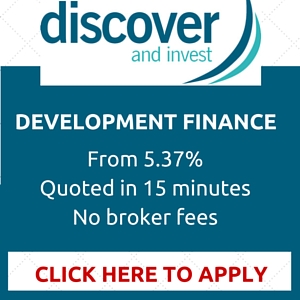There are many business owners out there who are currently looking for some form of finance, funding, or lending to help their business.
Some will be looking for funding for the first time in years, and for others it’s a regular trial. With so many choices and areas to think through, it can be a frustrating process.
It strikes me as interesting that a good number of business owners I speak with are not entirely set on what their solution is, and that some help would be of value.
In an effort to alleviate some of that frustration, below are 12 questions you can ask yourself to help figure out the right type of funding for your business:
1. Do you really need finance?
This might seem like a silly question to ask, but a good number of enquiries I get do not need finance. For example what some businesses need are more sales, and can achieve this without the cost of employing new sales staff.
A solution might be to build a commission-only sales agent network (and there are some good places to find such individuals), who already have contacts and experience in that industry.
Finance to prop up a business through working capital will only work for so long, so it is really important to begin with whether finance is really needed, and what possible business growth solutions exist, should business growth be the objective of looking for funding.
2. Where exactly in the business cycle is your capital requirement?
So if we have established finance is really required, when do we need it?
“Right now” I hear you say! Do know that there are some businesses that can get certain types of funding at interesting stages.
Take buyers/traders of physical goods, or stock, like wholesalers, importers, retailers or distributors. The High Street Banks may fund imports after they have been made and ready to ship, but typically do not fund the deposit.
Other businesses may stomach the stock purchase, the transport costs and time spent storing, so use invoice financing further down the line, when sales are made and invoices provided. However some experience cash flow challenges in between that need not happen. Non-bank funding exists to fund the deposit and stock purchase at a much earlier stage than many realise, both against the security of the goods, but also now against the cash-flow of the business (alternative short-term, Pay-As-You-Go overdrafts of sorts).
So evaluating the impact of finance at difference stages of the business cycle is an important area to discuss and understand.
3. Do you need equity or debt?
A good question, where the answer can either be a preference or a necessity.
This is a full article in itself, but essentially equity is useful at the start of a business cycle, when the company has not begun trading, and viewed more of a risk. It can also be a preference where debt can also be provided, but the ongoing regular payments of debt rob the business of much needed capital. The major ongoing difference is debt allows a business to schedule a fixed and certain cost, whereas equity, usually as a percentage of a business in the future, is an unknown quantity based on the future performance of that firm.
4. Do you need short-term or long-term?
We've all been conditioned to desire cheap, long-term debt, and for some businesses it is an excellent model. However, for others, short-term facilities are equally useful, and need to be understood.
Short-term facilities can be applied to a specific project, or buying period in the year, and therefore don't have to used when there is no need for them. Short-term funding also allows a business to change providers if they so choose, providing a degree of flexibility that long-term debt, with large early redemption penalties, does not typically give.
5. Do you want Pay-As-You-Go, or payments monthly & ongoing?
An expansion on the above point, but one I want to make. There are a number of facility types which need to be explored, compared and understood. One of the complaints of a traditional overdraft for example, is that seasonal businesses have to pay for this every month, which places capital strain on that business in the off-season. Not to mention the rash reductions in a number of otherwise good facilities around the country by most banks in today’s climate. Alternative short-term overdrafts are possible. They cost a little more, but offer better control, and can impact more positively on the bottom line in the long run.
6. Do you want Interest Only, or Capital & Repayment?
This very much depends on what sector you are in now, as most interest only facilities are as good as gone. Interest only works solely in a boom time when underlying values of security are, well, secure! It is still possible to get interest only in farming and a quasi interest only/equity product in short-term property development/refurbishment. So for the most part, budgeting for a Capital & Repayment debt product is a prudent exercise.
7. Do you want a company borrowing, or private individual?
With the rise of crowd funding, and private equity/debt investors surfacing on numerous investment network websites, the choice between lenders and individuals has never been greater. The beauty about private investors is their terms can be very different from institutional lenders. Whilst that may be advantageous, many do not have a set approval process, timeframe or criteria, so it is quite hard to say how long it will take to organise a deal. Many also tend to be quite hands on, particularly if equity is required. At the very least they are a sector worth exploring if you can't get debt, or don't want to deal with institutional funding.
8. Do you understand all the associated costs?
Understanding the interest rate is only one piece of the cost puzzle. Total costs vary according to which funding product you require. Invoice financiers charge not only an interest rate, but also a service fee and also charge for disbursements (quite often the larger chunk of the cost). Most short-term debt lenders have an arrangement fee and an exit fee of one month, with a minimum term of 1-2 months. Some debt lenders charge interest daily pro-rata after the minimum period, instead of monthly, saving you further costs. It is very important to understand the true cost of the finance you're looking at.
9. Are you/the directors prepared to give a Personal Guarantee?
This is essential to discuss. Most funders of any description require a PG, but not all. At the very least ensure you ask your funder upfront, as it will save much time and effort if you're not prepared to offer it.
10. Have you assessed all the options?
It is difficult to know the answer without years of experience and staying on top of the marketplace. An element of research needs to be undertaken to ensure all options have been sourced. This leads on to an interesting question, which is:
11. Do you know where to find all the options?
Contrary to popular opinion, Page 1 of Google does not provide you with the best options for what you have searched. Page 1 provides you with firms who have either paid the most to advertise there (top and right hand side), and some firms that Google has determined "rank well". That does not necessarily mean the firms you find there are the best ones.
Quite often the better products or firms are found on page 3, 5 or 7 of Google. Don't be afraid to hunt! It is also wise to pick up the phone to a few brokers, who have visibility of the entire marketplace, and years of experience. Good brokers can provide you with some hard-to-find options at a far quicker speed than you will find on your own.
12. Do you really need a trusted partner to help?
As a brokerage, we can hardly answer no!
The reality is that a good business finance broker offers the quickest and most efficient way for a business to evaluate the marketplace options.
Brokers are dealing in the marketplace 24/7, and good ones should have an in-depth understanding of the options available to you, even info on how lenders' products in the same arena differ. From there it is a far easier place for a business to decide what type of finance they need. A good broker will also get you in front of a high up contact quickly, and in 99% of cases should not need to charge a broker fee.
If you want to stay on top of an ever-expanding funding marketplace, and get in front of some interesting contacts you may not otherwise find, for free, a good broker is a worthwhile partner to have by your side.
What do you want to do now?
I want to read more articles on business finance...click here
I want more information on the types of products available...click here
I want someone to review my business situation...click here
I want help putting together an application...click here
I want to make an enquiry for non-bank funding...click here
About Chris Davidson
Chris Davidson is Managing Director of Discover & Invest Ltd.
He believes passionately in providing businesses with market-leading financial insights that have a positive impact on the bottom line. As a result, Chris helps get the best rates and terms available at any one time.
Connect with Chris on Facebook, LinkedIn and Twitter to keep abreast of the latest market offerings.






